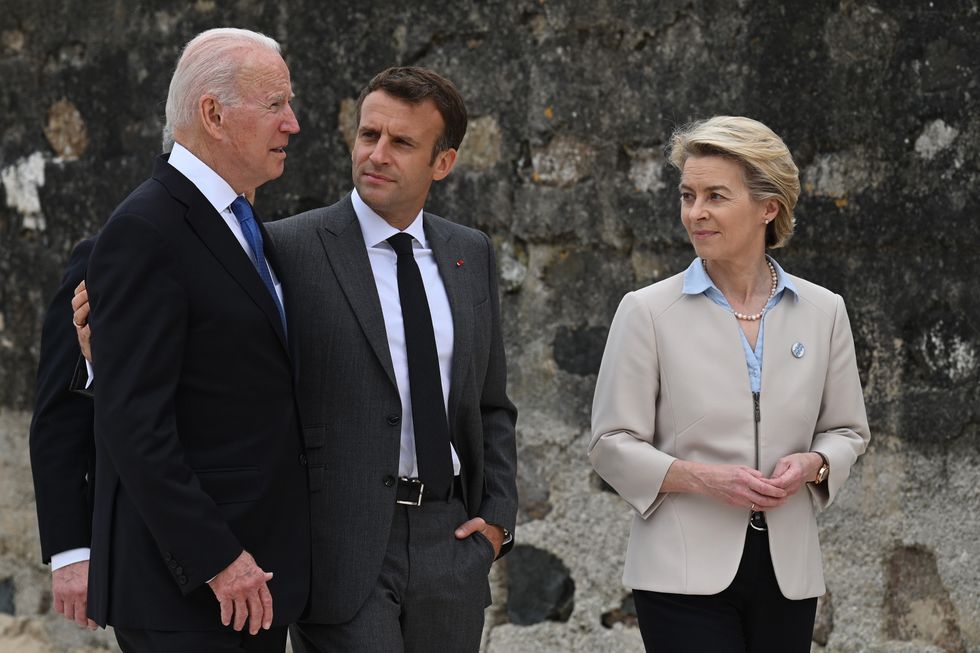France recalls ambassadors to US and Aus in response to AUKUS security deal

(left to right) US President Joe Biden, President of France Emmanuel Macron and European Commission Ursula von der Leyen after the leaders official welcome and family photo, during the G7 summit in Cornwall. Picture date: Friday June 11, 2021.
Leon Neal









